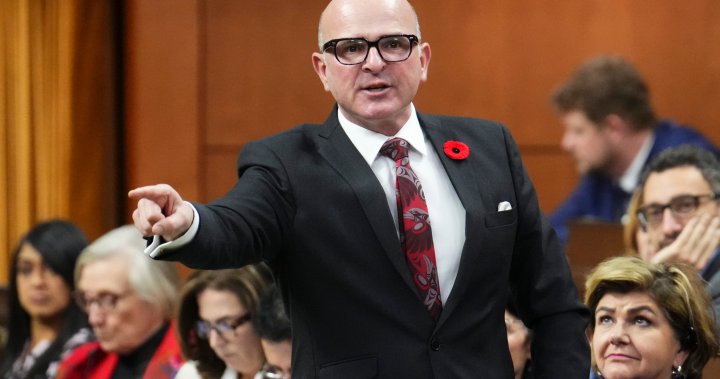Ahead of a looming vote on a Conservative motion to pause the federal carbon price on all forms of home heating, Alberta Liberal MP and Employment Minister Randy Boissonnault is defending the current policy – only pausing it for homes that use heating oil.
He says the decision reflects both a lack of options for residents in regions where home heating oil is heavily used, which critics of the policy say is predominantly Atlantic Canada, and added that the federal government has also done things that “disproportionately” benefit Albertans.
When asked by The West Block’s Mercedes Stephenson if he believes this is a fair policy, he said thousands of people across the country use heating oil and they’re often among Canada’s lowest income earners.
He then raised Ottawa’s purchase of the Trans-Mountain Pipeline in 2018 for $4.5 billion.
“We built a pipeline and TMX is going to get completed. And that pipeline disproportionately benefits Albertans, the Alberta coffers. It also benefits the federal treasury,” he said.
“And so when you have a country as vast and regionally diverse as ours, there are going to be some policy decisions that are going to take a regional focus but have a national impact. And that’s what we’ve done here…. Albertans have the ability to participate in this program.”
Last week, Prime Minister Justin Trudeau announced that the government would implement a three-year pause on the carbon price for homes on heating oil and work with provincial governments on plans to subsidize heat pumps for low-income residents.
Trudeau made the announcement flanked by members of the Liberal Atlantic caucus. The government defends the policy, saying it applies across the country, but critics say a disproportionate number of people who use heating oil live in Atlantic Canada.
This led to widespread criticism from premiers in the rest of Canada, calling the policy unfair.
On Tuesday, Trudeau said “absolutely not” to the possibility of more carve-outs in the federal carbon price.
“I think if you take a look at where we started this, in Atlantic Canada, we’re also talking about areas what we call energy poverty. So, what does that mean? Areas where there simply isn’t another solution,” Boissonnault said.
“If you’re in parts of rural Newfoundland and Labrador, if you’re in parts of northern Ontario, you can’t actually — there’s no other source.
“For thousands of Canadians, it’s the only option they have. And so this was a compassionate, responsible approach to making sure that our carbon pricing system continues to have integrity across the country.”

The vote on Monday, though non-binding, is set to see the Conservatives and NDP call for the pause to apply to all forms of home heating. The Liberals’ 158 seats are enough to defeat the combined 142 seats of the Conservatives and the NDP, who announced they would support the motion on Thursday.
This means the Bloc Québécois could hold the balance in this vote with 32 seats — or abstain entirely.
Bloc Leader Yves-François Blanchet said Thursday that his party has not made a decision on how it will vote but said a federal carbon price freeze would not benefit Quebec as that province has its own program.
Boissonault suggested the NDP is feeling political pressure.
“So I’m not surprised at all that the Conservatives have pounced on that and the New Democrats are looking for a way for their polls to come up in their numbers,” Boissonnault said on the upcoming vote.
© 2023 Global News, a division of Corus Entertainment Inc.




